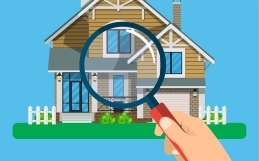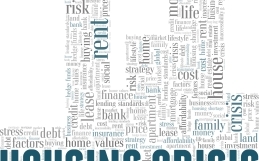 Remember the good, old days when getting a mortgage was easy-peasy? Why, you’d just head to the bank and sign some forms and then – poof! – you’d be approved. Off to buy a home! (That was a lot easier then, too.)
Remember the good, old days when getting a mortgage was easy-peasy? Why, you’d just head to the bank and sign some forms and then – poof! – you’d be approved. Off to buy a home! (That was a lot easier then, too.)
Well, those days are history. Getting a mortgage has, over the years, become a trickier and trickier thing to get. Even the tiniest of “blips” on credit reports can wreak havoc on your chances to get a pre-approval from an A-Lender.
There’s a lot to learn when it comes to the whole financial picture around buying a home, but first and perhaps most importantly is the need to understand your credit score and how it will affect your pre-approval.
So, what exactly is a credit score? The easiest way to describe it is to think of it as a snapshot of your credit profile. It’s a glimpse of the good, the bad, and the ugly bits of your financial decisions. What shows up on your score? There’s quite a lot of information gathered there, including but not limited to your loans, current and past credit cards, personal guarantees you might have put on a business loan, and mortgages.
Credit scores (also known as Beacon scores) are a number that will fall between 300 and 900. From the standpoint of getting a mortgage pre-approval, it’s safe to say that anything under 600 will be problematic. It may not be a dream-killer… but 600 or less is a sub-prime score that will require some attention, also known as credit repair. A Beacon score of 575, for example, is likely to put you in the realm of buyers who have to turn to private lenders rather than banks. Terms and rates won’t be ideal, to say the least. A bad credit score means trouble buying Guelph real estate or Sherwood Park real estate.
As it happens, the high majority of Canadians have credit scores over 650. Yay, us!
There are a number of elements that contribute to credit scores. Here’s a general breakdown of what’s included and how each element is weighted.
- Payment History. Roughly 35% of your score will factor in your payment history on the various loans and debts that are listed in your credit report. Late payments – not good. If you’re having trouble meeting payment terms, don’t just go into turtle mode and hide from the problem. Call your lender and ask them to work with you on a payment plan – even a temporary one – so that you don’t get dinged on your credit. Most vendors of credit and loan products will work with you. This is a better option than habitual lateness which will lower your Beacon score.
- Credit Utilization. Exactly how much you owe on credit products vs. what your limit is on those products is also an important piece of the credit puzzle. 30% of your score factors in the percentage of your credit that is utilized. Having a higher credit card limit and keeping the balance low is looked upon favourably.
- Length of Credit History. Banks and lenders want to know who you are and how long you’ve been building your credit. At the top of each Credit Report it lists the date since which your data has been collected. Too short of a history makes lenders nervous. If you’re leaving the country for some time, i.e. heading off to school, consider retaining some Canadian credit just to stay on the grid.
- Number of Inquiries. It can be a bit of a red flag when a mortgage lender pulls your credit only to find that the same report has been accessed repeatedly. The good news, and a common misperception, is that all mortgage inquiries conducted within a 45-day window are treated as one. You can, actually, shop for rates and service options within a 45-day window without causing damage to your credit score\
- Types of Credit. Lenders tend to want to see a little diversification in the accounts listed on your credit report. A report with just credit cards is not going to rank as highly as one that has a credit card, but also a line of credit, car loan, etc.
How to Improve Your Credit Score
If there are any collections or judgments against you that show up on your credit report, pay them right away. This should be a top priority.
All of your accounts should be brought up to date. Never skip a minimum payment on a credit card or other account. Needless to say, paying more than the minimum just makes good financial sense; but at the very least, pay that minimum to keep your accounts in good standing.
Because diversification is rewarded in a Beacon score, think about ways to embrace that. For example, could you ask your bank for a line of credit for use to pay off (and close) a credit card? If so, you’ll be omitting a high-interest product and diversifying. Both will be advantageous to credit scores.
Finally, it’s a good idea to check your own credit reports once a year. You can go to both TransUnion and Equifax sites and request a free credit report. There are paid services for this as well, but the basic credit report available to you for free once a year is all you need to keep tabs on what’s being reported. If you see anything incorrect or unusual, move quickly to resolve the problem, because fixing credit reporting errors is anything but fast or painless!
Save more, spend less… it’s all easier said than done in a time when most of us are feeling stretched thin. But… do it anyway. Be ever-mindful of your bills and your payments and remember that even one missed payment can impact credit scores. When the time comes to buy a home in Guelph, stellar credit will open doors for you and make the process significantly more enjoyable.







